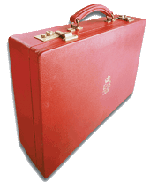Budget Brings 2 Year Pay Freeze for Public Sector

Compared to the figures published in the Conservative manifesto, the threshold has been raised £3,000 from £18,000.
VAT is to rise to 20% from the 4th January 2011. There's no change to the list of items that are exempt from VAT (for example, most food).
Tobacco, alcohol and fuel duty remains unchanged for now, though the cost of all of these items will be increased by the VAT rise. George Osborne said Parliament would look into ways of stabilising fuel prices in future, something that had been promised in previous Conservative literature. The Chancellor also spoke of support to councils so that they can deliver the manifesto pledge of a council tax freeze next year.
There had been some talk in the press of the income tax allowance being increased to £10,000, but today the Chancellor announced a £1,000 increase, bringing the amount you can earn before paying tax up to £7,475. George Osborne made reference to the £10,000 figure and said the Coalition would try to "make real steps towards achieving that..." over the next five years. Employers' threshold for National Insurance is to rise from £110 to £131.
Across Government, the Coalition is looking to reduce departmental spending (except in Health and International Development) by an extra 17% over Labour's plans.
Benefits have taken a mix of cuts and increases, with the narrative being a reduction for the better-off, whilst bolstering support at the lower end.
After speculation that Child Benefit might be re-worked, Government has opted for a 3-year freeze. Increases in benefits (apart from pensions) are now to be linked to the (usually lower) measure of inflation, the Consumer Price Index, rather than the Retail Price Index, saving the government a projected £6Bn over the life of the current parliament. From 2013, a new medical assessment will be brought in for recipients of Disability Living Allowance with an aim of saving £11Bn. The family component of Tax credits are now to be reduced for households earning £40,000 or more, a less savage cut than was previously trailed in the press. Child tax credits are to increase by £150 above inflation next year. State pensions are to be relinked to inflation, or 2.5%, whichever is greater.
In his speech, Mr Osborne said "it is a progressive budget", though some might argue that the VAT rise damages that claim.
The highest rate of Capital Gains Tax is to increase (from midnight tonight) to 28% from 18%, while Corporation Tax is set to drop 1% each year for four years, ending at 24%. The Chancellor said he was aiming to reduce overall spending by an additional £30Bn over Labour's plans, a total of £80Bn.
Overall the Coalition seems to have delivered a budget aimed at bringing down expenditure more quickly, perhaps with the aim of getting the pain over more quickly, whilst hoping to see an increase in tax receipts by encouraging business. It was never going to be a popular budget, and the public sector pay freeze (in real terms, a pay cut) will be painful and unwelcome. Many public sector workers have already suffered a number of years of erosions on pay and conditions, and this pay freeze arrives at a time when many workers who were downgraded in job evaluations will be approaching the end of their pay protection period, making this especially damaging for them. The pay cuts are probably not surprising to most, though. They are, at least, proportionally more fair to the lower paid and mitigated by the tax threshold increase, though that may be cold comfort to those affected.
Links
Full budget documentEdit 22.06.10 19.17: Correction - tax credits reduced, not eliminated, above £40,000 household income.




